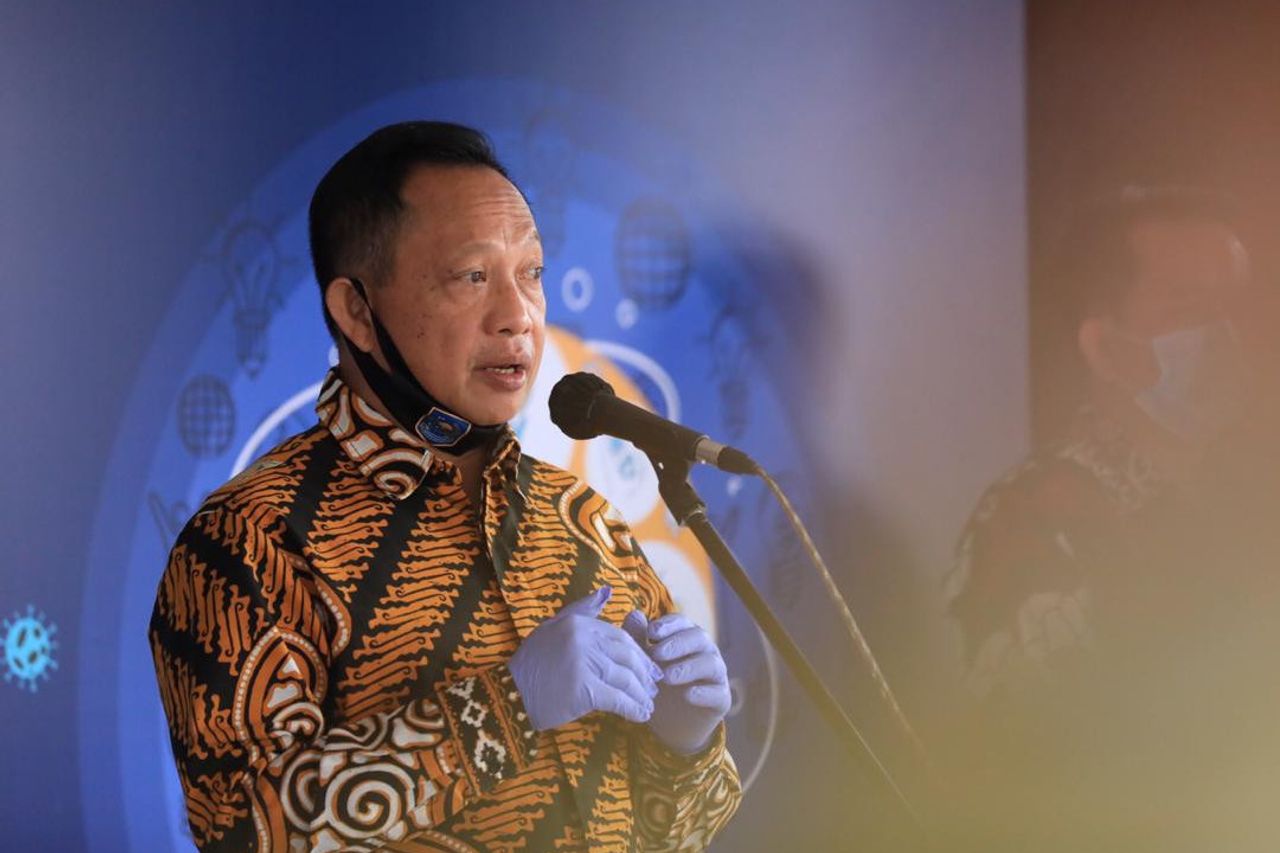Seeing The Possibility Of COVID-19 Reducing SARA Issues In The Middle Of The 2020 Pilkada

JAKARTA - Minister of Home Affairs (Mendagri) Tito Karnavian assessed that the COVID-19 issue should be able to reduce the issue of SARA in the midst of the 2020 Pilkada which was held on December 9.
In an event held by the Indonesian Election Supervisory Agency (Bawaslu), Minister of Home Affairs Tito said he wanted a big theme in organizing the elections. The big theme in question is the handling of COVID-19 and its social impacts.
"We raise the central issue in this election, which is about handling COVID and handling the social impacts of COVID-19," said Tito in an event broadcast on the Bawaslu RI YouTube account, Tuesday, June 23.
Big themes like this, he said, could be used to attract people to use their voting rights during the elections. Moreover, similar incidents have occurred in America and South Korea.
He said, in the two countries, the COVID-19 pandemic was made a big issue in general elections, and made the voter turnout rate increase dramatically.
The former National Police Chief gave an example of South Korea, when carrying out elections there, the participation rate reached 62.2 percent. This figure, continued Tito, is the highest participation rate figure since 1992, and the reason is that they want to choose the government to effectively handle this pandemic.
So, he believes, if the same issue is presented in the 2020 Pilkada, it will bring many benefits. Apart from increasing the number of voters, another possibility is to reduce the use of the issue of SARA in the election.
"I think if the central issue, the big issue is the issue of effectiveness in dealing with COVID and its social impact, it can reduce the potential for premordial issues that often become regional election conflicts. Issues of ethnicity, race and religion can be suppressed," he said.
In addition, he considered, the issue of COVID-19 could make the incumbent regional heads and newcomers really argue about handling this virus.
"The area where the incumbent competes will really be assessed by the public as capable or not and this will become ammunition for non-incumbent contestants to issue ideas, including issuing criticism," said Tito.
"If there are areas that become red, then the positive ones increase, then there are victims that will become other ammunition. While non-incumbents can issue a lot of ideas, which is positive for him to be chosen because he is able to deal with COVID-19 and its social impacts. "he added.
Tito may be sure that the COVID-19 issue in the 2020 Pilkada can reduce the use of SARA issues by each candidate pair. But not the Executive Director of the Indonesian Political Review, Ujang Komarudin.
On a separate occasion, Ujang said, the issue of SARA will still be used in every implementation of general elections, including the upcoming 2020 Pilkada. The reason is, issues like this are sexy for attacking political opponents.
"The issue of SARA may still appear in the Pilkada. Because, the issue of SARA is a sexy issue, which can be used to attack political rivals," Ujang told VOI, Tuesday, June 23.
He assessed that politicians would certainly not think twice about using an issue that could lead to this dispute. Because, in politics all possibilities can be used. "Any issue, including the issue of SARA, will of course be used," he said.
He is also not sure, big issues like COVID-19 will attract newcomers. Because, from existing experience, incumbent candidates will usually remain superior to newcomers.
This is because candidates for regional head usually have an inherent advantage, namely, their position. "Incumbents everywhere will use their positions to win back themselves," said Ujang.
Even if the newcomer regional head candidate wants to win the Pilkada. Ujang assessed that the capital must be so much. This is because the incumbent candidates usually have more logistics than the challenger.
"Incumbent has power, money, networks, bureaucracy, and others. So if the opponent or newcomer wants to win, the power must be more than the incumbent," he said.
The 2020 Pilkada will be held in 270 regions on December 9. This schedule changed due to COVID-19. Previously, the 2020 Pilkada was scheduled to be held on September 23.
After the election schedule was postponed, the KPU resumed the stages of holding the Pilkada simultaneously since Monday, June 15 by forming a District Election Committee (PPK) and the inauguration of the Voting Committee (PPS) in the regions that will hold regional head elections.
Then, Regency / City KPU again compiles Voters List by Regency / City KPU and submits it to PPS and Voting Organizing Group (KPPS).
Then, the KPU set a period for updating the Provisional Voters List (DPS) to the determination of the Final Voters List (DPT) from June 15 to December 6.
Furthermore, on September 4-6, the KPU will officially open the registration stage for prospective regional head candidates and the determination will be carried out on September 23.
After that, the campaign stages will start on September 26 to December 5 or 71 days. The KPU will divide the campaign period for the regional head candidates into three phases. First, limited meeting campaigns, face-to-face meetings, dialogue, dissemination of campaign materials to the public, installation of props, and / or other activities.
In the second phase, the KPU will conduct a public debate between candidate pairs as part of the campaign. The third phase of the KPU will open the campaign for regional head candidates through mass, print, and electronic media from November 22 to December 5.
Prior to voting on December 9, the campaign will end with a quiet period that will take place on December 6 to 8.
